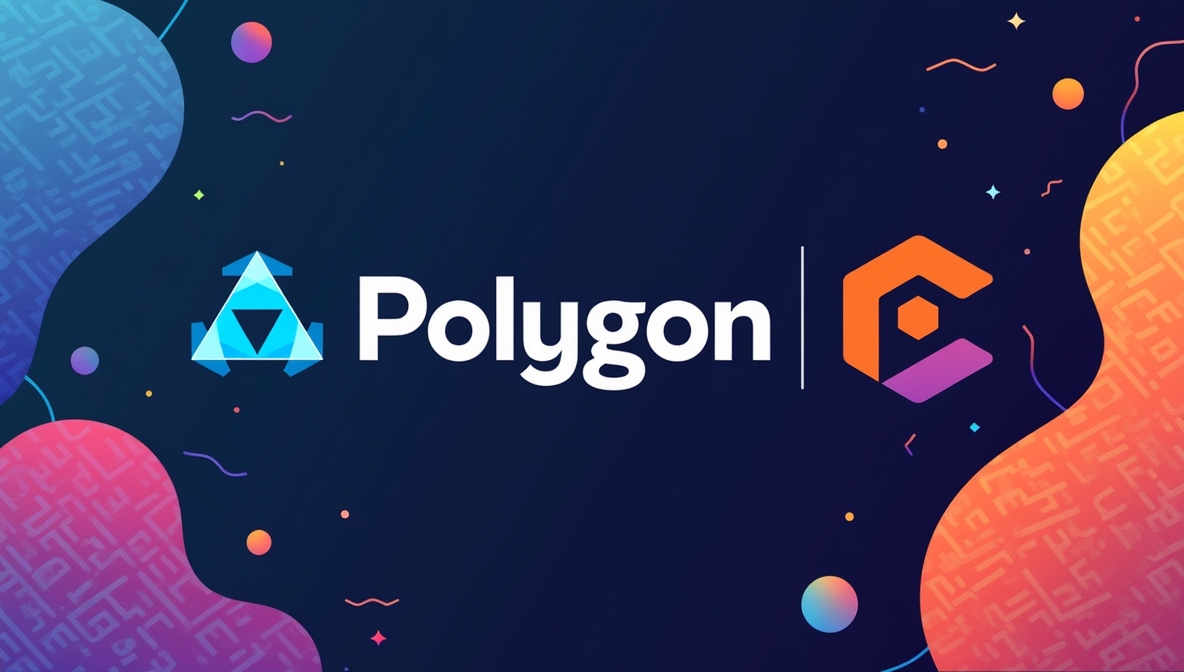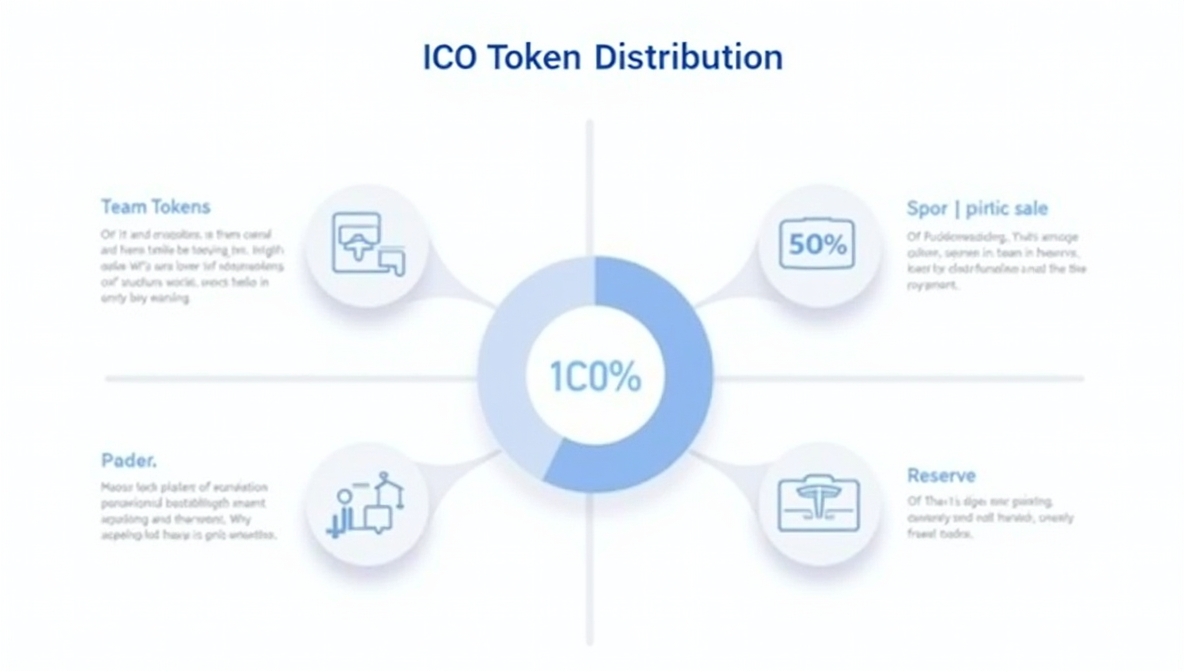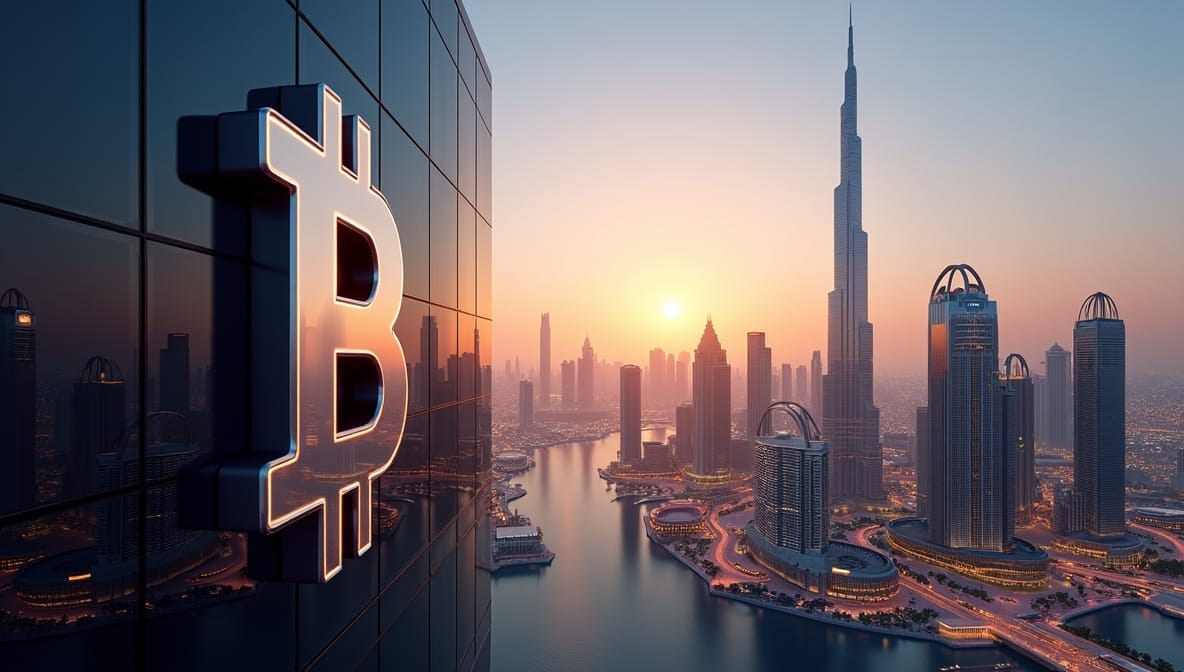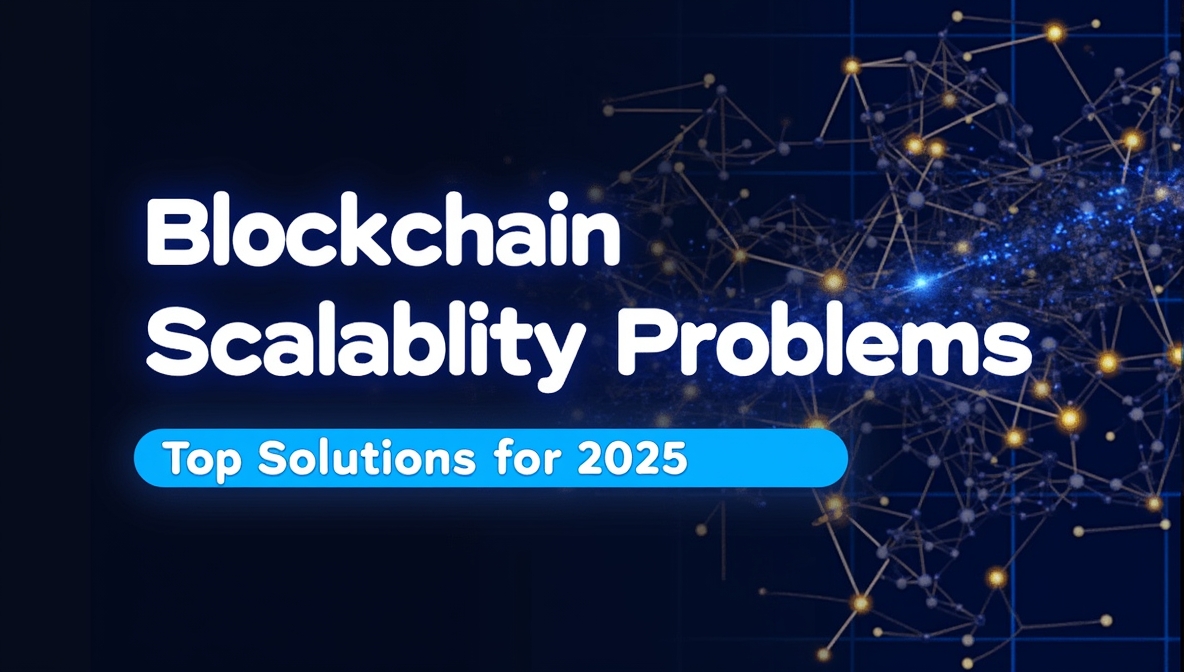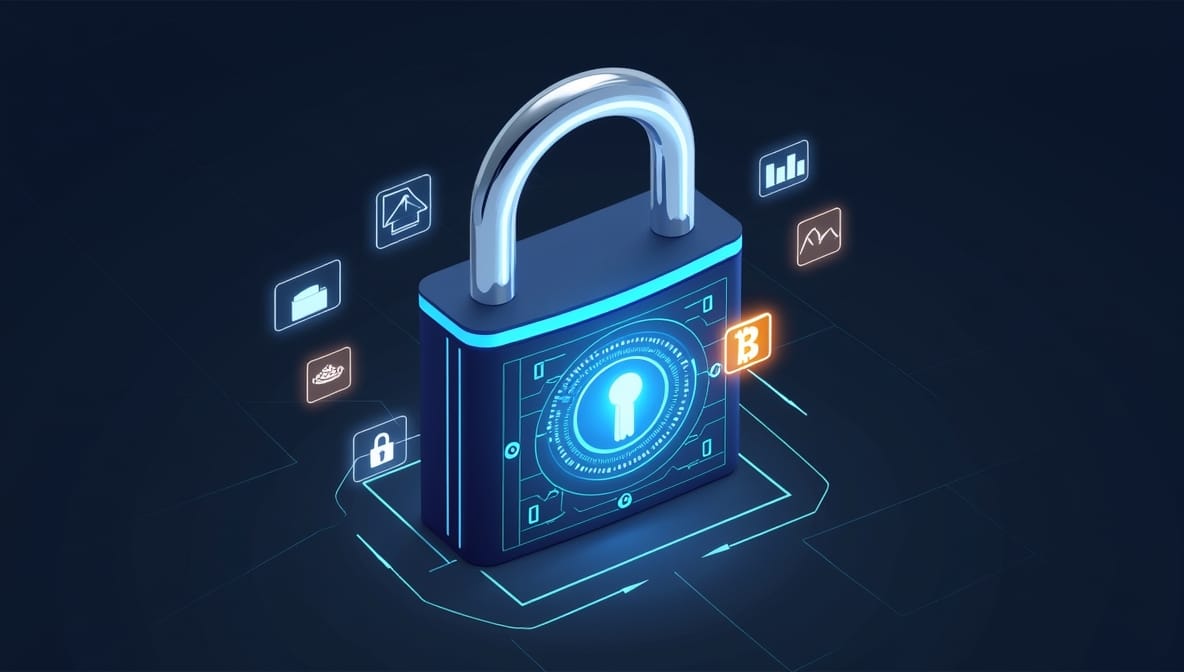By the time this article was written, the Dubai International Financial Centre (DIFC) had marked 20 years of welcoming investors, startups, and companies in the UAE. It is home to more than 5,200 active registered companies and over 27,000 professional workers and employees.
A smooth bounce back after COVID, a neutral political stance, and being easy to do business with have made the UAE more and more appealing to businesses and wealthy individuals.
The UAE’s on-shore companies (link to blog about on-shore companies) have the liberty to do business with the UAE mainland and other countries, without any geographical restrictions.
The DIFC is the region’s largest dedicated financial precinct. It is the pearl of this region.
In this article, we will go into the details of how and why to get authorized in the DIFC, its benefits, required documents, and what we can do to help.
What exactly is the DIFC?
The Dubai International Financial Centre (DIFC) is a 110-acre free zone area in Dubai that caters to and houses financial institutions. It has its own set of laws that govern the DIFC and operates with separate regulatory and registration systems from those of the Dubai Land Department and RERA (Real Estate Regulatory Agency).
Established in 2004, the DIFC quickly became the favorite destination for firms specializing in fintech products and services.
It is one of the world’s top eight onshore financial centers and offers a secure and efficient platform for businesses and financial institutions to reach into and out of the emerging markets of the region.
Dubai, The Strong, Global Gateway

With its 3 million residents from nearly 200 nationalities, Dubai has become a major geographical and financial center.
Its skyscrapers, lavish lifestyle, and leading mobile network coverage are not the only things that make Dubai appealing to investors.
According to the Global Financial Centres Index, Dubai ranks among the world’s top 10 financial centers. It is home to 17 of the world’s top 20 banks, over 200 asset management companies, specialist global advisors, as well as 13 of the world’s top 25 wealth and asset managers.
Moreover, the city’s IOT (internet of things) sector contributes $4.8 billion to its GDP.
Additionally, investors have the advantage of closely tracking all the major financial markets by setting up their base in Dubai.
DIFC, The Future-Forward Financial Center
The Dubai International Financial Centre (DIFC) saw 34% growth in new registrations in 2023, helped by demand from companies in a broader range of sectors and new industries such as fintech, boosting the city’s status as the Gulf financial hub.
These are more indicators that make the DIFC the future of investments:
- 820 new companies joined the DIFC in the first half of 2024.
- The FinTech and Innovation sectors rose to 1,081 from 811 in 2024, which is a remarkable growth of 33%.
- In 2020, the number of fintech businesses registered in the precinct more than doubled to 303, up from 114 in 2019.
- Named brands including Ebury, Ripple, Adyen, KoFax Me, and Tabby, joined the DIFC in 2020.
- The DIFC says a total of 915 financial companies are now active in DIFC, up 24% from 735 in 2019.
- Occupancy levels for DIFC-owned properties remained high at 99.6%, while third-party commercial office space occupancy stood at 89%.
- In 2020, total banking assets booked in the DIFC rose 6% to US$189 bn.
- 4,647 new jobs have been created by DIFC companies since 2023, which is a 12% increase from the last year.
- During the first half of 2024, it was confirmed that 2023 Gross Written Premiums for the insurance sector reached USD 2.6bn, rising from USD 2.1bn, an increase of 24 percent.
It’s Not Just Finance. It’s a Lifestyle
The DIFC is home to some of Dubai’s most popular restaurants, coffee bars, boutiques, and art galleries. These facilities entertain clients and keep them satisfied during their visit.
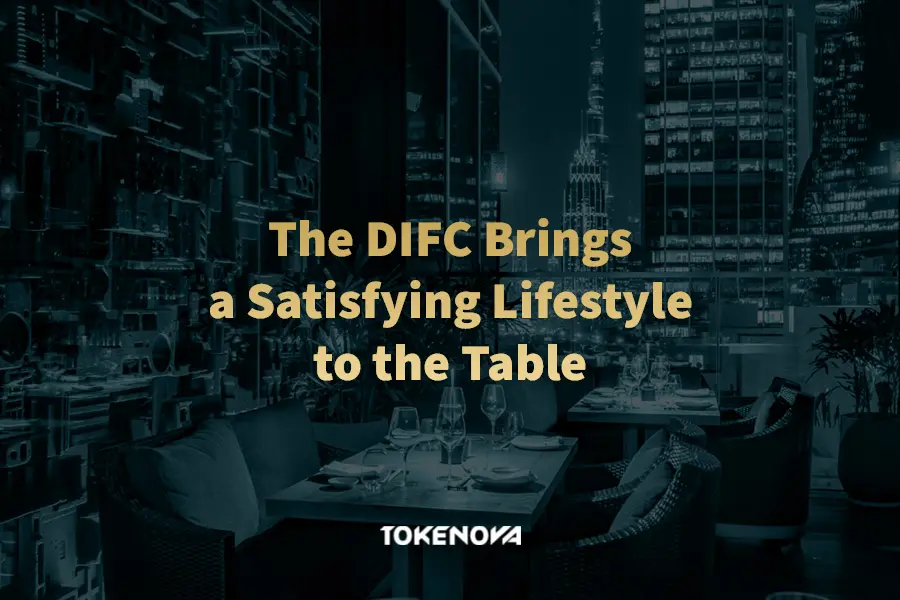
The DIFC also offers a wide range of non-regulated activities, such as corporate offices, regional headquarters, family offices, holding companies, and proprietary investment companies.
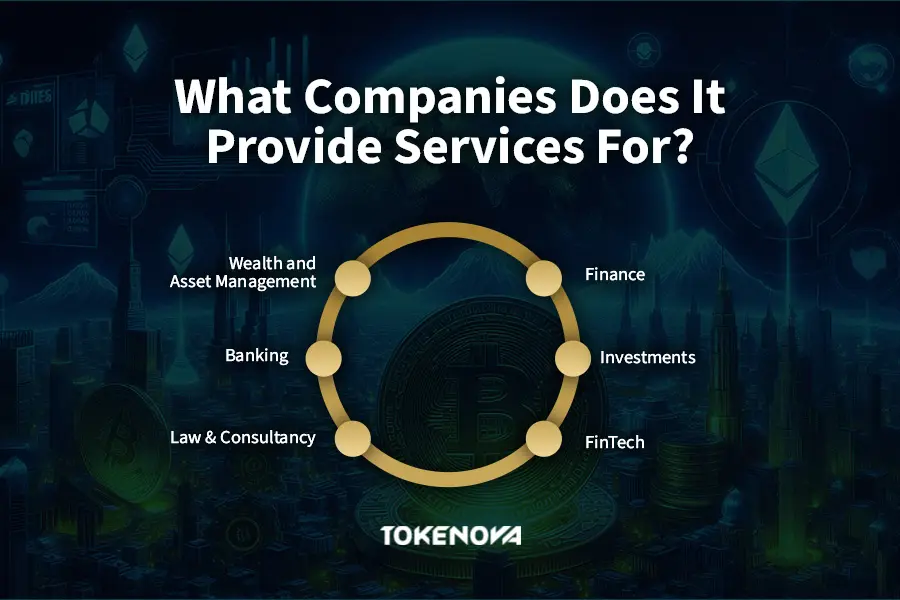
What Companies Does It Provide Services For?
- Finance
- Investments
- Law & Consultancy
- Banking
- Wealth and Asset Management
- FinTech
The following financial service activities can be carried out by the DIFC:
- Investment banking.
- Private banking.
- FinTech innovations
- Fund management.
- Asset management.
- Brokerage and investment advisory services.
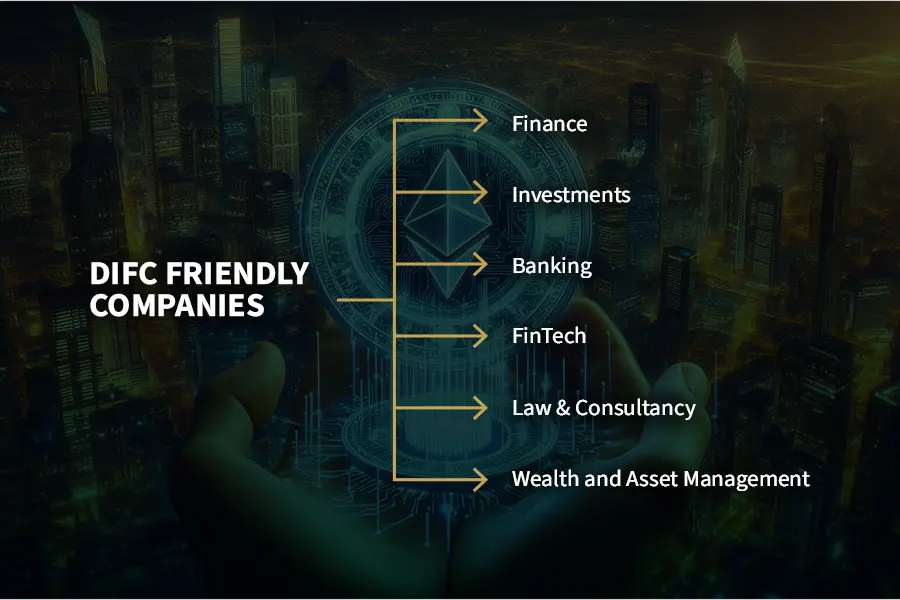
DIFC and FinTech
The Dubai International Financial Centre (DIFC) has positioned itself as a pioneer in innovation and technology, particularly through initiatives aimed at nurturing financial technology (FinTech) growth. Let’s take a closer look at the innovative landscape at DIFC.
Innovation Hub
Ecosystem: The DIFC Innovation Hub is home to over 1,000 tech firms, including established companies and emerging startups. The hub aims to generate economic value by promoting innovation across various sectors. It provides resources such as co-working spaces, regulatory support, and access to a network of investors and mentors.
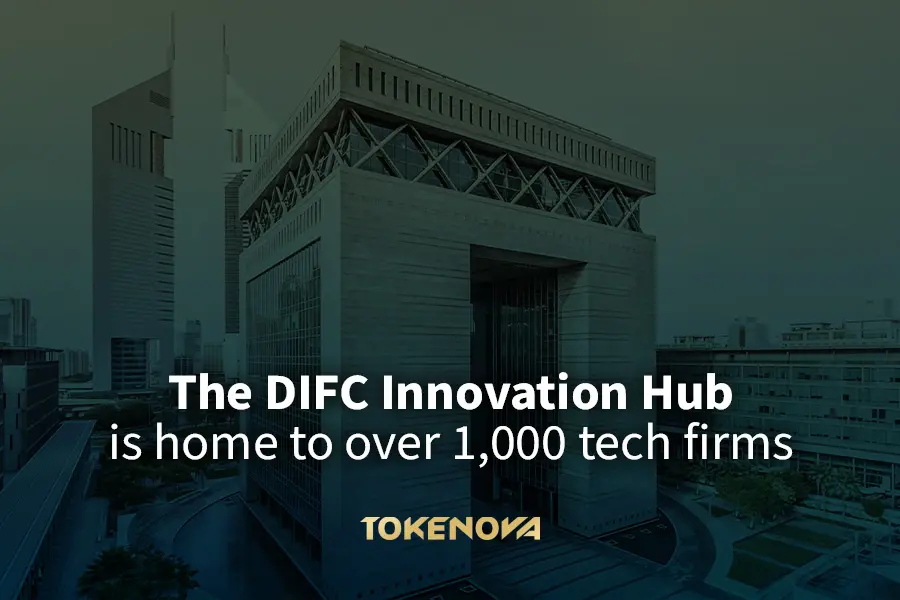
Innovation License: The DIFC provides an Innovation License, serving as a launchpad for tech firms and entrepreneurs seeking to establish themselves in the region. This license streamlines access to the financial services market while ensuring compliance with local regulations.
Metaverse Accelerator
Geared towards startups in the blockchain and the Metaverse, this accelerator provides training and networking opportunities to help them succeed in this growing industry.
It aims to add USD 4bn to Dubai’s GDP, support 40,000 virtual jobs by 2030, and attract 1,000 companies specialized in blockchain and metaverse technologies.
The inaugural “DIFC Metaverse Accelerator Program” was the first initiative announced under the “DIFC Metaverse Platform” umbrella, and attracted over 160 applicants from the UAE, UK, US, India, and France, with a focus on primarily Metaverse, AI, Web3, AR/VR and Blockchain sectors.
The program supports startups in various sectors such as payments, regulatory technology (RegTech), wealth management (WealthTech), and insurance technology (InsurTech). For instance, previous cohorts have included companies like Apaya, specializing in payment orchestration, and Artivatic.ai, a platform for InsurTech.
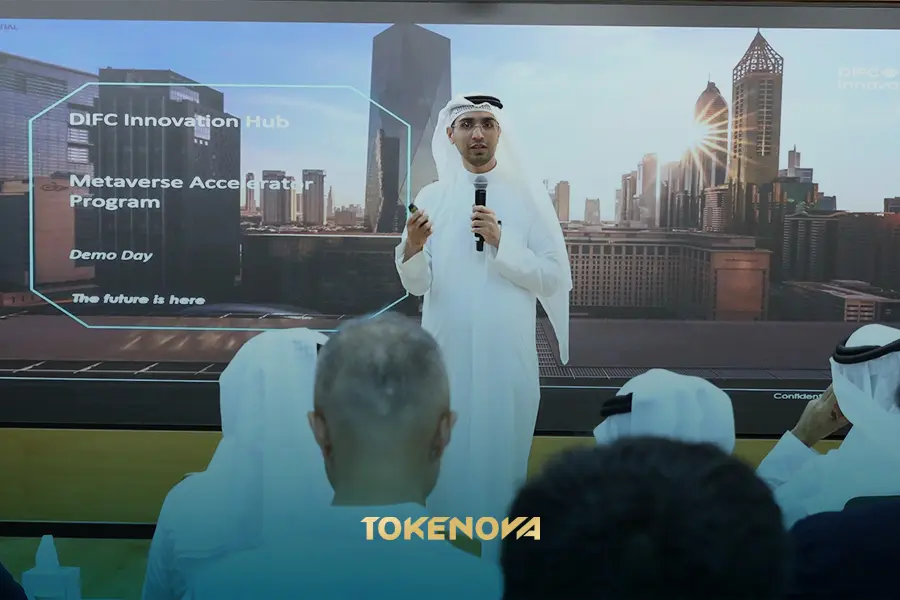
Collaborative Initiatives
Emirates NBD and DIFC have teamed up to establish an API Sandbox, which allows fintech startups to develop and test their solutions using more than 200 APIs. This collaboration aims to foster innovation by providing a secure space for developers to create new financial products. Furthermore, the FinTech Hive has partnered with global accelerators and incubators to broaden its reach and provide local startups with international exposure. This network facilitates the exchange of knowledge and creates investment opportunities across borders.
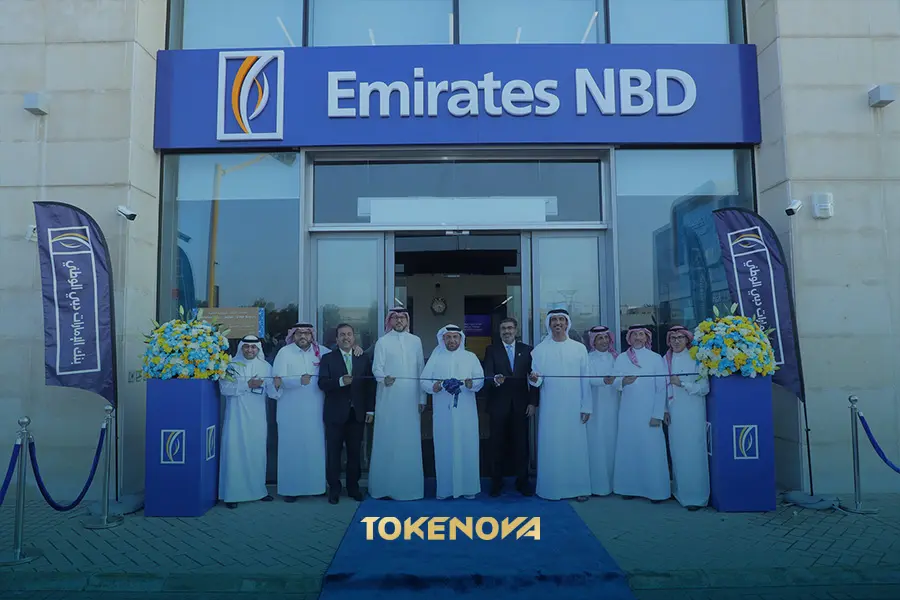
Future-Focused Strategies
Metaverse Strategy: As a part of Dubai’s extensive digital transformation plan, the DIFC is working on creating a metaverse platform to assist startups that are concentrating on blockchain technologies. This effort is designed to set up a strong foundation for policy development and digital identity within the metaverse.
Sustainability Initiatives: The DIFC is prioritizing sustainable finance by integrating environmental considerations into its innovation strategies, including fostering startups that prioritize sustainability in their business models.
The Dubai International Financial Centre (DIFC) shows its commitment to innovation and technology through strong support for fintech startups, collaborative initiatives with established financial institutions, and forward-thinking strategies aimed at leveraging emerging technologies such as blockchain and the metaverse. This unique ecosystem strengthens Dubai’s status as a global financial hub and fosters a vibrant community of innovators shaping the future of finance.
DIFC & Tokenization
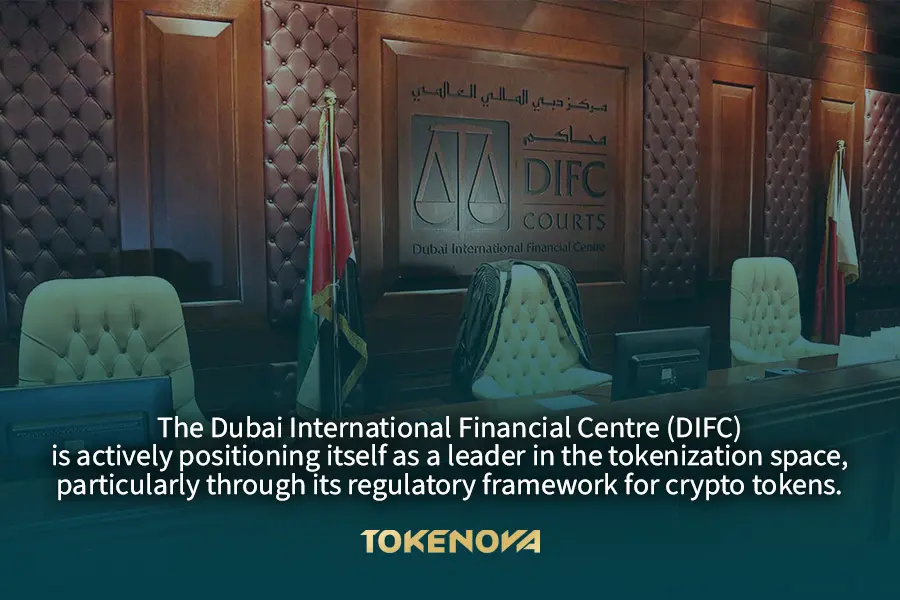
The Dubai International Financial Centre (DIFC) is actively positioning itself as a leader in the tokenization space, particularly through its regulatory framework for crypto tokens.
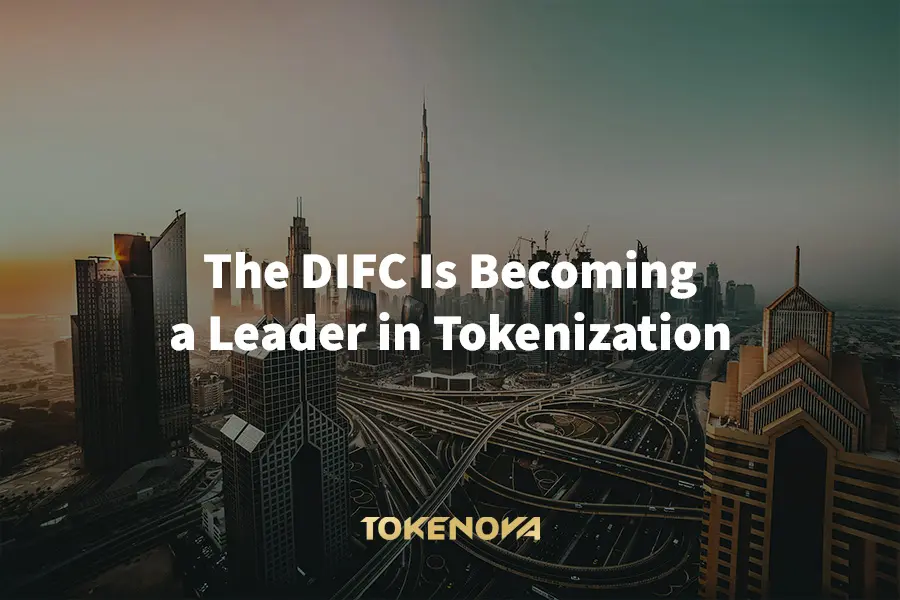
Regulatory Framework for Crypto Tokens
Enhanced Crypto Token Regime
The Dubai Financial Services Authority (DFSA) has made significant amendments to its Crypto Token regime, which was originally launched in 2022. These updates aim to align the regulatory environment with evolving international standards and market dynamics. The changes were informed by extensive consultations with over 100 firms interested in obtaining licenses within the DIFC.
Key Amendments include:
- Investment Flexibility: Domestic Qualified Investor Funds can now invest in unrecognized crypto tokens under specific conditions, expanding the investment horizon for local funds.
- Custody and Staking: The regulations now encompass custody solutions for both recognized and unrecognized crypto tokens. Additionally, provisions for staking have been introduced, requiring due diligence and risk disclosure to clients.
- Financial Crime Compliance: Enhanced guidelines on financial crime compliance have been established, including transaction monitoring and adherence to the “travel rule,” which mandates the sharing of certain information between financial institutions.
Digital Assets Regime
The DFSA is in the process of creating a comprehensive digital assets framework that covers different types of tokens:
- Security Tokens: The first part of the framework is dedicated to security tokens, while the second part will deal with utility tokens, exchange tokens, and stablecoins. This framework aims to facilitate the issuance, trading, and management of these digital assets.
- Legal Characteristics of Digital Assets: A new Digital Assets Law outlines how digital assets can be controlled, transferred, and dealt with legally. This law provides clarity on ownership and rights associated with digital assets, establishing a legal basis for tokenization initiatives within the DIFC.
Innovation and Market Development
The DFSA’s objective is to create a regulatory environment that encourages innovation and complies with global best practices. This approach is designed to attract fintech firms and stimulate the development of new financial products through tokenization technologies.
- Global Recognition: The DFSA has recognized various crypto tokens, including well-established currencies like Bitcoin and Ethereum, as well as newer entrants like Toncoin and Ripple. This recognition strengthens the credibility of the DIFC as a center for digital asset innovation..
Future Directions
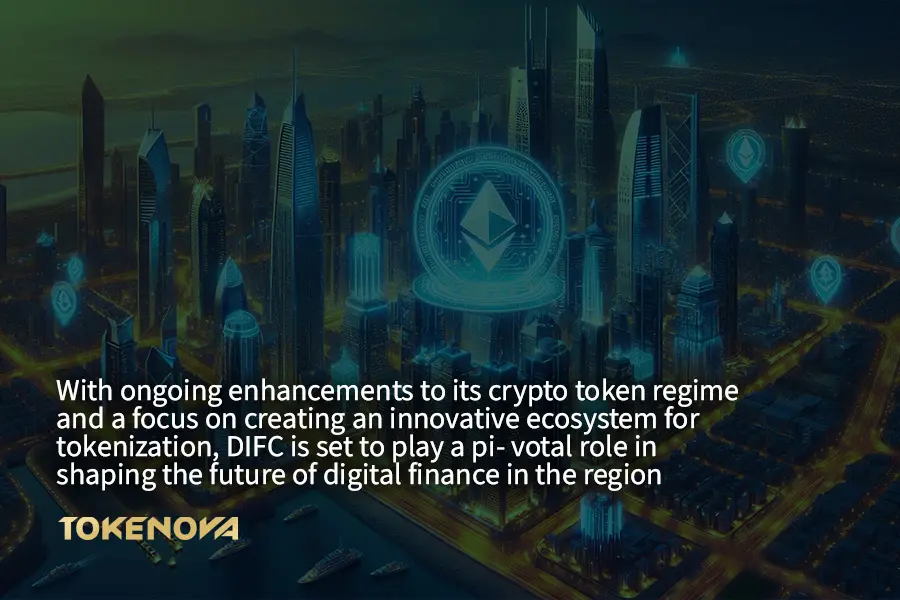
The DIFC continues to evolve its regulatory framework to accommodate emerging technologies and market demands. With ongoing enhancements to its crypto token regime and a focus on creating an innovative ecosystem for tokenization, DIFC is set to play a pivotal role in shaping the future of digital finance in the region.
In summary, DIFC’s commitment to developing a robust regulatory framework for tokenization reflects its ambition to lead in the global fintech landscape while ensuring that innovation occurs within a secure and compliant environment.
How do you get a DIFC FinTech License?
In order to set up a FinTech business in the DIFC, you’ll need the following documents:
- Clear Passport copy, Photograph, a Signature sample of Shareholder/s
- 3 proposed company names in order of priority
- Business Plan
- 3 months Bank Statement
Climate-friendly financial advancements
The DIFC has launched the Path to COP28 program in collaboration with GEFI to unite the global finance community to address climate change. This includes industry roundtables, summits, and an education program organized through the DIFC Academy. The Dubai Sustainable Finance Working Group (DSFWG) has released reports to assist companies in adopting a structured approach to achieving Net Zero, ESG innovation, and sustainability-linked lending. DIFC’s initiatives will continue to lead the growth of sustainable finance in the region leading up to COP28 and beyond.
DFSA, The Regulator
The Dubai Financial Services Authority (DFSA) is the independent, risk-based regulator for businesses operating within the Dubai International Financial Centre (DIFC). It is responsible for issuing licenses and regulating banking and financial institutions within the DIFC. It adheres to world-class regulatory policies that are in line with financial regulatory standards practiced in major financial centers such as London and New York.
In simpler terms, the DIFC is a zone where all the buildings and people are, and the DFSA is trying to help bring the utmost stability by supporting your company and testing and supervising the DIFC’s financial activities.
In order to get to the DIFC, you’ll have to get through the DFSA first.
Legal Framework
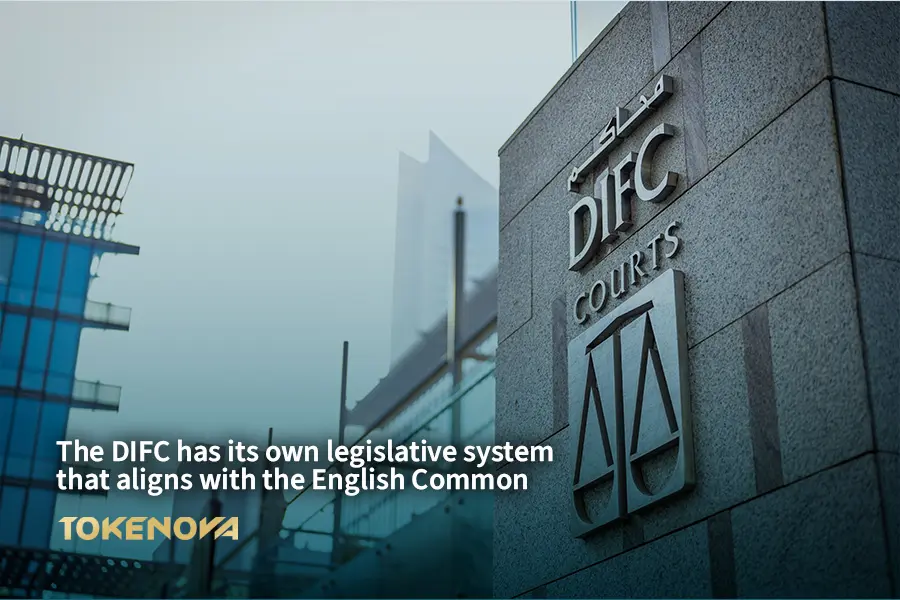
The DIFC has its own legislative system that aligns with the English Common Law. The DIFC Courts are responsible for independently administering and enforcing justice within the DIFC. They address all civil and commercial disputes that arise within the DIFC.
Business Benefits from DIFC Business Setup
- MEASA Growth: The Middle East, Africa, and South Asia (MEASA) have experienced three times faster growth than developed markets over the past 20 years. It is projected to grow by 4.6% per year over the next five years, providing significant opportunities for businesses.
- 100% Foreign Ownership: The DIFC allows 100% foreign ownership, giving entrepreneurs full control of their businesses without requiring a local partner, making it appealing to international firms.
- 0% Tax Rate on Income and Profits: Companies in the DIFC benefit from a 0% tax rate on income and profits, which encourages investment and allows for reinvestment into operations.
- Double Taxation Avoidance Agreement: The UAE has a Double Taxation Avoidance Agreement (DTAA) with many countries, preventing double taxation on income and enhancing the attractiveness of setting up in the DIFC.
- 100% Profit Repatriation: Businesses can enjoy 100% profit repatriation, allowing unrestricted transfer of earnings back to their home countries, which is attractive to international investors.
- Independent Regulatory Environment: The DIFC operates under an independent regulatory environment, providing clarity and predictability for businesses to operate confidently.
- Common-Law Framework Consistent with English Law: The DIFC’s legal framework is based on common law, consistent with English law, simplifying legal navigation for international businesses.
- Fully Transparent Operating Environment: The DIFC offers a fully transparent operating environment, adhering to world-class compliance processes that foster trust among investors.
- Hub & Spoke Model: The Hub & Spoke Model allows companies to open branches globally while maintaining their headquarters in Dubai, enhancing operational flexibility.
- International Stock Exchange: An international stock exchange in the DIFC provides access to various financial instruments for investment, facilitating capital raising.
- Exceptional Talent Pool: Dubai has an exceptional talent pool, attracting global professionals and enhancing innovation among companies in the DIFC.
- Elevated Lifestyle: The UAE offers an elevated lifestyle, featuring top-tier apartments, shopping, and infrastructure, which attracts talent and boosts employee satisfaction.
- Time Zone Advantages: Dubai’s strategic location provides time zone advantages, bridging gaps between major financial centers like London, New York, Hong Kong, and Tokyo for easier global engagement.
Types of Legal Entities in DIFC
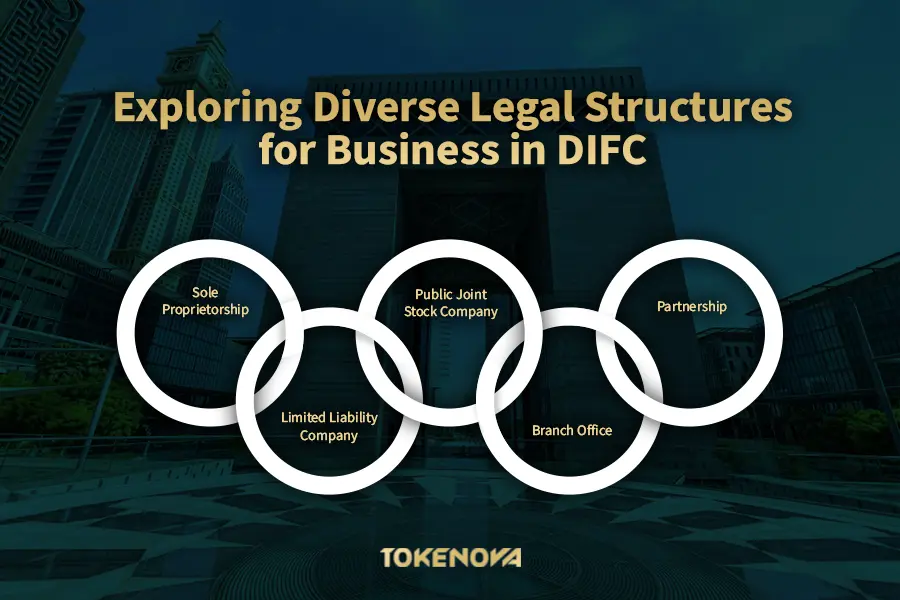
DIFC is the hub for all financial and fin-tech types of companies. The Special Economic Zone is focused on companies involved in financial and investment-related activities.
Legal Business Forms in the DIFC are:
Sole Proprietorship: A business owned and operated by a single individual.
Limited Liability Company Public Joint Stock Company: A company listed on a stock exchange, allowing the public to buy and sell its shares.
A company limited by shares: The main business structure available in the DIFC after recent legislative changes is a company limited by shares, which can be divided into Private Companies and Public Companies. Compliance requirements include maintaining proper records and filing confirmation statements with the Registrar of Companies (ROC) during license renewals.
Limited liability company (LLC): A company owned by one or more shareholders, where each shareholder’s liability is limited to their investment.
Branch Office: A branch office in the DIFC allows foreign companies to operate without forming a separate legal entity. It serves as an extension of the parent company. To establish a branch office, companies must provide documentation proving their parent company’s registration and financial standing. Additionally, they need to obtain a commercial license from the DIFC Authority.
Partnership: Partnerships in the DIFC can take various forms, such as general partnerships and limited partnerships. These structures are suitable for professional services firms or joint ventures. To operate, partnerships must register with the DIFC Authority and adhere to relevant laws, including the maintenance of accurate financial records. Furthermore, they are subject to specific governance structures depending on their type.
Documents Required for Business Setup in The DIFC
- Application Form: Complete the prescribed application form provided by the DIFC Authority.
- Business Plan: A detailed business plan outlining your company’s objectives, operations, and financial projections.
- Proof of Trade Name Reservation: Documentation confirming that your chosen trade name has been reserved.
- Initial Approval of Business Activities: Evidence of approval for the specific business activities you intend to conduct.
- Shareholder Information: Details regarding shareholders, including identification and proof of ownership for major shareholders (those holding more than 5% of shares).
- Director Information: Identification and details of at least two directors who will oversee the operations of the business.
- Audited Financial Statements: Audited accounts for the last three years for shareholders, if applicable.
- Compliance Documents: Anti-money laundering compliance forms and any other regulatory documents required based on the nature of your business.
- Key Controller Information: Details about key controllers and management staff, including their qualifications and roles within the company.
- Organizational Chart: A proposed organizational structure outlining roles and responsibilities within the company.
- Operational Systems Description: Information on internal audit processes and compliance systems to ensure regulatory adherence.
- Office Lease Agreement: Proof of physical office space within the DIFC, which is mandatory for all registered entities.
Setting up an Entity in DIFC: The Procedure
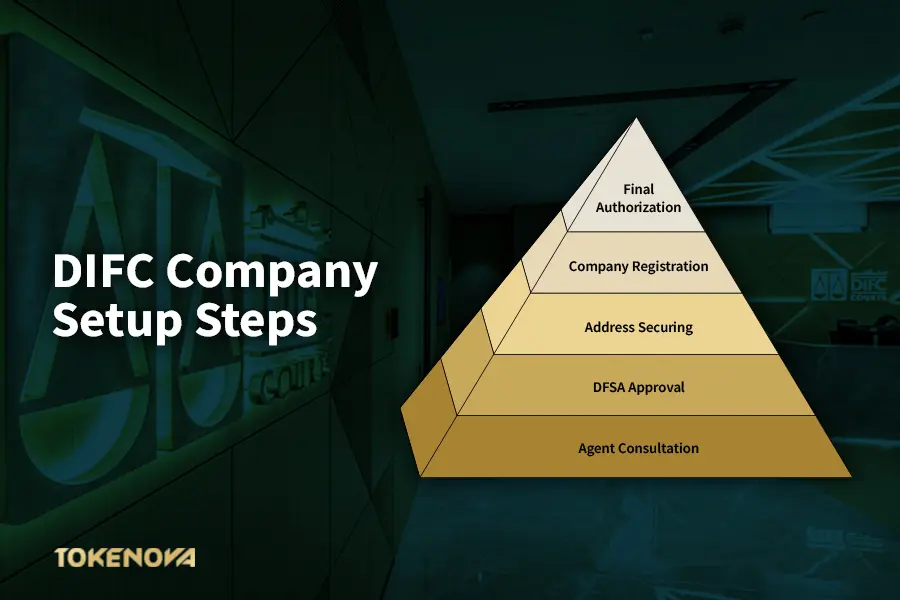
Setting up a company in Dubai International Financial Center (DIFC) requires the below 5 steps to complete the process. Investors can set up their company in DIFC with minimal processes and documentation requirements.
1. Consult with a Registered Agent
- Discuss your business plans with a registered agent.
- Receive a detailed proposal outlining costs, options, and requirements.
2. Obtain DFSA Pre-Approval
- Submit a business plan to the Dubai Financial Services Authority (DFSA).
- Obtain approval for your financial services company.
3. Secure a Registered Address
- Rent or buy office space in the DIFC.
- Register the lease agreement with the appropriate DIFC authority.
4. Register Your Company
- Complete the registration process with the DIFC Registrar of Companies.
- Pay the required fees based on your business structure and activities.
5. Obtain Final Authorization
- Submit additional information to the DFSA for final review.
- Receive your financial services license from the DIFC Licensing Authority.
- Apply for an establishment card to process employee visas.
The Future of The DIFC
In January 2019, the DIFC announced its plans to expand by adding 13 million square feet of space to the Centre’s integrated ecosystem.
The new development, known as DIFC 2.0, will serve as an international focal point for FinTech and innovation, further enhancing the Centre’s reputation as one of the world’s most advanced financial centers.
The expansion will be carried out in multiple stages, commencing in 2019. Upon completion, DIFC 2.0 will offer 6.4 million square feet of office space, 2.6 million square feet of creative space, 1.5 million square feet of residences, 1.3 million square feet of retail space, and 700,000 square feet of space dedicated to leisure and entertainment. Additionally, it will feature a 400,000 square feet financial campus, 250,000 square feet of hospitality space, and 3.5 million square feet of parking space.
DIFC 2.0 is an extension of the existing jurisdiction, with direct connections to Dubai’s public transport networks. The new development will introduce open green spaces and underground service paths to facilitate the free movement of bikes, pedestrians, cars, and smart transportation.
What Tokenova does for you
Your business can become more profitable and the process to get it authorized and established can go smoother if you pick the right zone.
The UAE’s on-shore, off-shore, and free zone companies each enjoy certain conditions. Tokenova thoroughly studies your plan and helps you choose the best option.
Then, we help you at each stage of the procedure to form a company in the DIFC and remove uncertainties about the DIFC and the DFSA.
Tokenova’s consultants will help you efficiently establish your financial services or related services company in the DIFC. Since companies in the DIFC are concentrated on finance and investment, it’s essential to undergo a comprehensive review of the shareholder profile, business activity, and business model by the relevant authorities.



